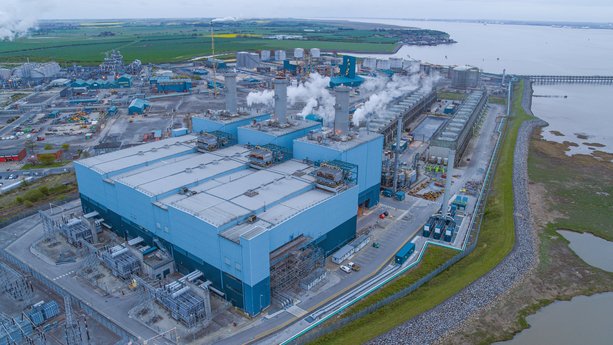Equinor and SSE Thermal are to form a JV to acquire Triton Power for a total consideration of £341m, with the deal expected to be complete by September subject to approval from the UK National Security Filing and EU Merger Control.
The key plant included in the purchase of Triton Power is the Saltend Power Station with an installed capacity of 1.2 GW. This is a conventional combined cycle gas turbine using natural gas. The main role of this power plant today is to provide electricity during periods of low output from solar and wind. Equinor and SSE Thermal are now starting work on preparing the power plant to use up to 30 percent hydrogen from 2027, with an ambition to eventually increase to 100 percent hydrogen operation.
The hydrogen could come from Equinor’s H2H Saltend hydrogen project, which would reform natural gas into hydrogen by carbon capture and storage, capturing more than 95 per cent of its CO2 content. Saltend Power Station would then become an anchor customer for the hydrogen project. With the purchase, Equinor and SSE Thermal could thus begin to decarbonise flexible power generation and at the same time contribute to triggering production of low carbon hydrogen for industrial purposes as well.
Irene Rummelhoff, Equinor’s executive vice president for Marketing, Midstream and Processing, said: “This acquisition together with SSE Thermal demonstrates our commitment to building a broad energy partnership with the UK. We will continue to work to supply the UK market with reliable energy and to reduce emissions by offering a transition to hydrogen through our hydrogen project H2H Saltend. Contributing to flexible power supplies with low CO2 emissions to support weather-dependent renewable energy is essential to ensure energy security through the energy transition.
“Flexible energy will be crucial as renewable energy scales up further over the coming years, providing important back-up and improving security of supply. But the real gain will be how we contribute to decarbonisation in the longer term, and we are particularly excited about the possibilities for hydrogen and carbon capture in Saltend. Together with Equinor, we will explore all avenues to decarbonise Saltend and create new opportunities for other businesses so that they can operate in a future with net zero emissions,” says Catherine Raw, CEO of SSE Thermal.
The Humber is the UK’s largest industrial region with annual emissions of over 12 million tonnes of CO2, half as much again as the second largest region. Decarbonisation is essential for these industries to continue to operate as society move towards net zero emissions. In addition to providing flexible power to support variable generation from renewables, the H2H Saltend hydrogen project will also support industries to switch from coal to hydrogen. This includes factories that are part of the Saltend Chemicals Park, which already is supplied with electricity and steam from the Saltend Power Station.
Mick Farr, Chief Executive, Triton Power, said: “This agreement will allow the Triton Power assets to continue to provide critical grid services and flexible power generation while building on the progress already made on decarbonisation. I have been particularly impressed by the vision and commitment shown by SSE Thermal and Equinor in our discussions and believe they have the capabilities and knowledge required to allow our pipeline of clean energy projects to proceed at pace.”



